He is a discreet but key figure behind the scenes in the unfolding saga involving President Emmanuel Macron's former security aide Alexandre Benalla, who was sacked after he was caught on camera beating up protestors at a MayDay demonstration in 2018. Jean-Louis Haguenauer was the French businessman who was the go-between for the Russian security contract negotiated by Benalla while the latter was still working at the Élysée as a senior aide for the French presidency. Now, with the support of testimonies and documents, Mediapart can reveal the unique network that Haguenauer has built up in Russia over 30 years, plus his close links with the Russian security services.
These fresh revelations come five months after Medipart's initial revelations about Alexandre Benalla's involvement in setting up a security contract with an oligarch with ties to the Kremlin, Iskander Makhmudov. This contract is now being investigated by France's financial crimes prosecution unit the Parquet National financier (PNF) and has been at the core of the investigations carried out by France's second chamber, the Senate, into the Benalla affair.
Mediapart can today reveal that:
- Jean-Louis Haguenauer, who personally brought the Makhmudov contract to Benalla and his colleague Vincent Crase at the end of 2017, has financial links with a former lieutenant colonel in the FSB who is still a reservist for the powerful Russian domestic intelligence and security agency.
- Jean-Louis Haguenauer has also had close links for several years with Vladimir Pronichev, who was number 2 at the FSB from 2003 to 2013.
- The French intermediary banked on the rise to influence of Emmanuel Macron and Alexandre Benalla as early as the summer of 2016 and was active in the subsequent presidential election campaign in 2017.
- Skilled at using tax havens and heavily involved in many different sectors (trade, sport, property, consultancy and security) in Russia, Jean-Louis Haguenauer also had financial links to a Moscow nightclub K19, which was favoured by foreign delegations, and which is located just opposite the FSB's offices. This establishment was targeted by an investigation into prostitution and pimping.
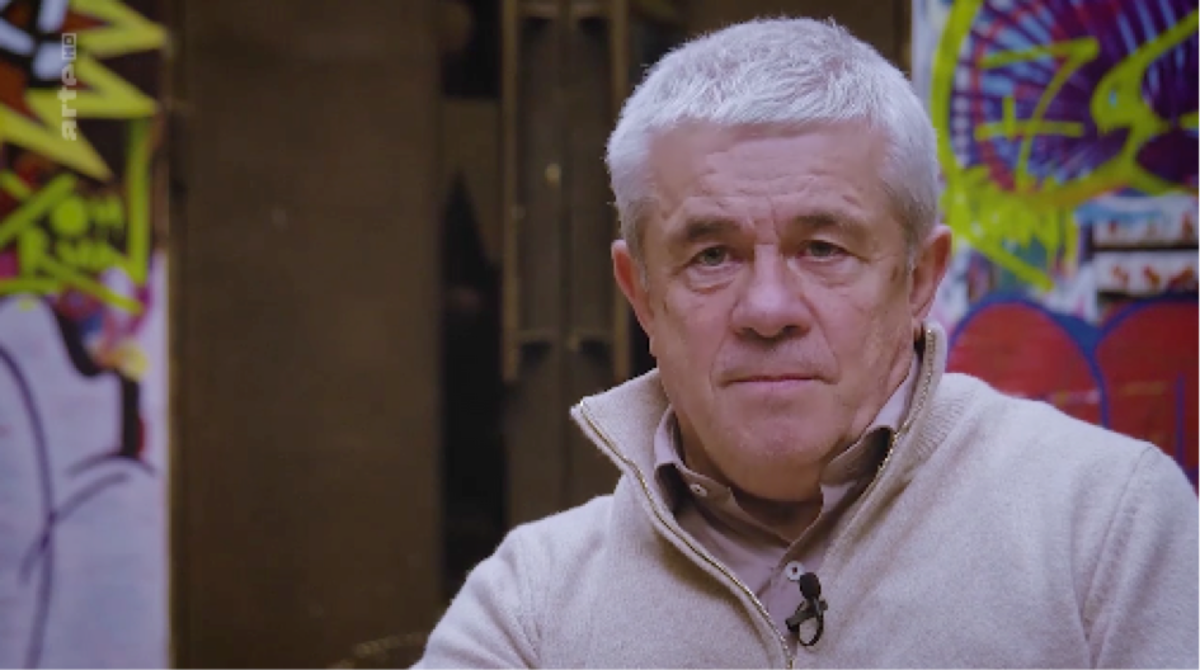
Enlargement : Illustration 1

Poring over the background of Jean-Louis Haguenauer, who will turn 68 in August this year, is to wade through three decades of obscure and opaque business dealings conducted between France and Russia. His CV could be that of an adventurer from that twilight world where money, power and secrets intertwine; from suspicions of match-fixing on behalf of top French football club Olympique Marseille when it was owned by businessman Bernard Tapie at the start of the 1990s, to a bar used by prostitutes in the centre of Moscow, from joining hunting parties with wealthy French businessman Martin Bouygues to working via a plethora of tax havens.
Over the last few months several people who were or are close to Haguenauer have variously described him to Mediapart as someone who is a “character from a novel”, a “guy with the cheek of the devil”, and the type of person who is “never scared”. A former associate, speaking on condition of anonymity, summed him up this way: “Extremely astute, wonderfully dangerous”.
He is also clearly a good judge of situations. From 2016 he banked on the victory of future presidential candidate Emmanuel Macron by getting personally involved in his campaign. Mediapart has seen and authenticated messages in which he tried to convince a socialist elected representative to join the centrist presidential candidate. Most importantly, Haguenauer also forged close ties with a rising figure in Macron's inner circle: Alexandre Benalla.
This is the result of Mediapart's investigation into the key figure behind the Russian aspect of the Benalla affair.
I. Russia uncovered
Haguenauer, who is originally from the south east of France, went off to Russia on a sudden impulse in the middle of the 1980s. At the time the businessman was involved in the import-export trade and for his first joint venture he worked with Gossnab, the Soviet state committee in charge of the supply of food and industrial goods which were at the time being opened to foreign markets.
This Franco-Russia project, funded by the Soviet bank for overseas trade, involved the construction of a factory to make rubbish bags from recycled plastic. Jean-Louis Haguenauer had worked at a rubbish treatment company in the south of France, who were a stakeholder in the scheme.
Though the factory was opened with much fanfare in 1988 it quickly closed down. According to someone involved in the venture the main reason for the failure was the factory's first director, a “KGB guy who had been installed by the authorities” who was “quite brutal” and who clearly had little understanding of recycling techniques.
In any case, Jean-Louis Haguenauer had by then moved on to other things. Thanks to his burgeoning network in Moscow, the businessman was beginning to make money. Working with his partner of the time, he helped the leading French company in liquorice extract production to trade with Russia. This business led to a few run-ins with the French justice system when some of the money from the sale of 84 tonnes of liquorice found its way in the spring of 1993 into an account the Frenchman had opened at Lausanne in Switzerland.
But the French businessman bounced back. At the same period he was representing the French defence and aeronautic group Dassault in Russia. He was also scouring Africa for potential business for KamAz, a Soviet firm which made military lorries.
II. Football and offshore accounts
With his connections in both Moscow and Marseille, Jean-Louis Haguenauer also began working for the new star of the French Mediterranean city, Bernard Tapie, who had bought Olympique Marseille football club (OM) for a symbolic one franc in 1986.
In August 1991 the club paid 375,000 dollars to Haguenauer via a bank account in Zurich for his company Baxanes investment Est, which was registered in Liechtenstein. This suspect payment – up to then Bazanes had had nothing to do with football – came under the spotlight later when the football club's accounts were under investigation.
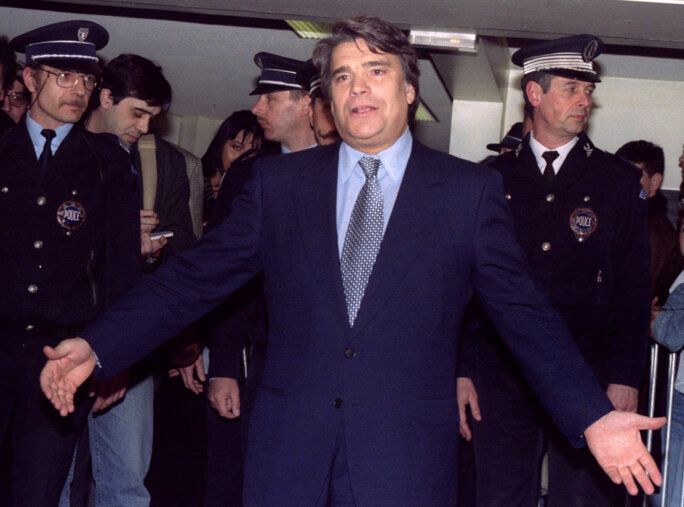
Enlargement : Illustration 2

After Zurich this money went on a circuitous route, via Panama and then Switzerland again. The judge investigating the OM affair at the time, Pierre Philippon, said the set up was aimed at “hiding the identity of the final beneficiary of the commission paid by OM”.
When questioned by detectives at the time, Jean-Louis Haguenauer said that the money had been given to him to throw the Spartak Moscow - Marseille Champions League match in April 1991. Their 3-1 away win in the first leg helped Marseille reach their first Champions League final that year, though they lost it on penalties to Red Star Belgrade.
At the time Le Monde reported that Marseille's former director general, Jean-Pierre Bernès, had told the investigation that “there was an agreement over the sum of 2 million francs” and that “Bernard Tapie had ordered him to go and see Jean-Louis Haguenauer in Moscow to ask him if he could approach Spartak's players”. Bernès claimed that “on the eve of the match he had met Haguenauer and [Vagiz] Khidiyatullin, a former Russian player, who had confirmed that all had been arranged with the [Spartak] players”.
Investigating judge Pierre Philippon concluded at the end of his investigation in 1997: “They had to embezzle very large sums [of money] from OM with the aim of bending the sporting competition.” However, none of the accused were sent for trial over alleged corruption in relation to this.
Later Jean-Louis Haguenauer went back on what he had said and insisted that the 375,000 dollars had in fact related to “television rights for the broadcast of the match and not throwing it”. Haguenauer faced criminal proceedings for complicity in and receipt of the proceeds of the misuse of corporate assets, though the European football governing authority, UEFA , chose not to open an investigation. When questioned by Mediapart, Bernard Tapie said he had no recollection of the episode.
The judicial investigations at the time also showed that Jean-Louis Haguenauer, who had helped the French international Manuel Amoros over his transfer to Marseille in the summer of 1989, had helped draw up hidden agreements to justify a payment of 5.5 million francs to the player's account in Zurich. In 1998 Haguenauer was finally convicted by the court of appeal in Aix-en-Provence in the south of France and given a 10-month suspended prison sentence and a fine of 100,000 French francs.
III. In the shadows of the secret services
The Frenchman's run-ins with the legal authorities in his native France encouraged him to put down roots in what was now the post-Soviet era in Russia. The years under President Boris Yeltsin transformed the country into one vast Wild West in which fortunes were quickly made and just as quickly lost. “It was chaos, Jean-Louis loved it,” laughs an associate from the time.
This was the period in which the French middleman got to know two key men, the businessmen Andrei Bokarev and Iskander Makhmudov, the oligarch behind the payments to Alexandre Benalla. The two men, who owe a part of their fortune to their links with the Kremlin, are among the most powerful people in Russia today. Makhmudov has also for many years been suspected by several prosecutors in Europe of having links with criminal gangs in Moscow, something he has always strenuously denied.
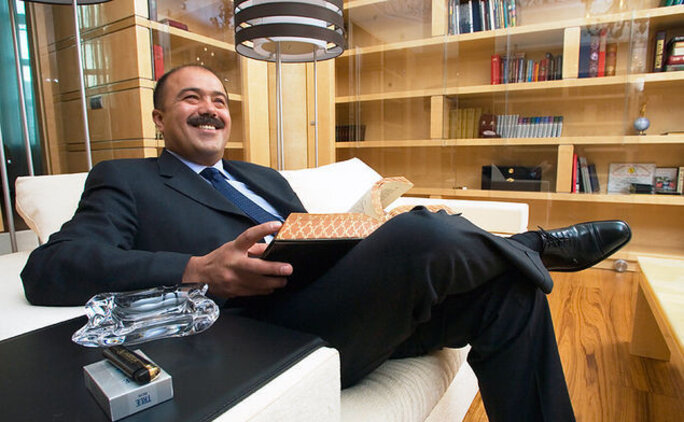
Enlargement : Illustration 3

Haguenauer's experience in “Soviet and post-Soviet Russia, as well as his multiple contacts, have always turned out to be precious,” says Jean-Michel Cosnuau, another Frenchman who was an expatriate in Moscow for a long time and who is a close friend of his. “Lots of the people that he had come across and helped had important positions in the system,” adds Cosnuau, a bar manager.
Indeed, as a result of Haguenauer's close links with key people in Moscow, the French intelligence services described him in 2014 as a “pro-Russian” figure.
But in fact, according to Mediapart's information, Jean-Louis Haguenauer's connections with Russia go even deeper and he has direct links with the Russian secret services via at least two people.
First of all, the Frenchman is close to Vladimir Pronichev, who was number 2 at the Russia intelligence and security agency the FSB from 2003 to 2013. Pronichev is particularly known for having been the head of operations during the school hostage tragedy at Beslan in North Ossetia in 2004, which left 334 civilians dead including 186 children.

Enlargement : Illustration 4

But Haguenauer is also linked, and financially in this case, to Alexei Riabtsev, a former lieutenant colonel in the FSB at regional level, who is still a reservist in the service. The two men met at the start of the 2000s to build a hotel complex at Ekaterinburg, the city east of the Ural Mountains where the last Tsar Nicholas II was killed in 1918.
Haguenauer and Riabtsev dream of creating a huge business district to the south-west of the city by 2025 and set up the company Opim Ekaterinburg, which serves as the project manager for this project, which began in 2004. They were also involved financially in another company, Straji Ural, which is in charge of building two office blocks.
“Riabtsev and Haguenauer both controlled the land where the Hyatt hotel [in Ekaterinburg] was built. They asked UGMK [editor's note, the Ural Mining and Metallurgical Company, owned by Iskander Makhmudov] to invest in the building of the hotel, then Haguenauer asked [French construction firm boss Martin] Bouygues to carry out the construction work. That's how the deal was done,” one of those involved told Mediapart.
The Ekaterinburg Hyatt hotel was completed in 2007, its first brick having been lain back in 2005 in the presence of right-wing French Member of Parliament Thierry Mariani, who helped Haguenauer during a period of his business career. At that time Mariani was putting pressure on officials working for Philippe Douste-Blazy, France's foreign affairs minister from 2005 to 2007, for the French Foreign Ministry to choose Ekaterinburg as the site of its third consulate in Russia.
The French MP and the French middleman got their way and in 2007 the French ministry inaugurated its new offices in the Urals. “It was a political opportunity for me, an economic opportunity for Jean-Louis,” says Thierry Mariani. Another witness confirms: “It allowed [Haguenauer] to have a platform for his business. Mariani was the political guarantor of all that.”
One of Jean-Louis Haguenauer's great skills is using his contacts book with huge effectiveness. “Haguenauer lives in that world. He's always saying to himself 'If I were to put so-and-so in contact with so-and-so...',” someone close to him explains.
For example, it was the Frenchman who introduced Russian companies to MIPIM in Cannes, a property exhibition which describes itself as the “premier real estate event” in the Mediterranean resort. On this occasion Haguenauer was working both for Makhmudov's UGMK and Renova, the world's leading aluminium company.
IV. Bouygues, Valls and the oligarch
After the construction of the Hyatt hotel in Ekaterinburg, Haguenauer was on excellent terms with Martin Bouygues, head of the giant property and telecommunications group that also owns popular television channel TF1, and with whom he shares a passion for hunting. Fortuitously, Iskander Makhmudov also owns one of the most beautiful hunting domains in France, an estate of 500 hectares known for its wild boar and large deer, situated in the Loir-et-Cher département or county in the middle of the country. “Our relationship is a friendly one,” Martin Bouygues told Mediapart.
In March 2007 Martin Bouygues went to Ekaterinburg with Patrick Kron, the CEO of rail and transport group Alstom (of which Bouygues is also a shareholder) to sign a “memorandum of development and cooperation” with UGMK (read the details of the agreement here in French). A former diplomat who used to work at the French Embassy in Moscow say that each time the two leading French businessmen were in Russia, Haguenauer was always there and at their disposal.
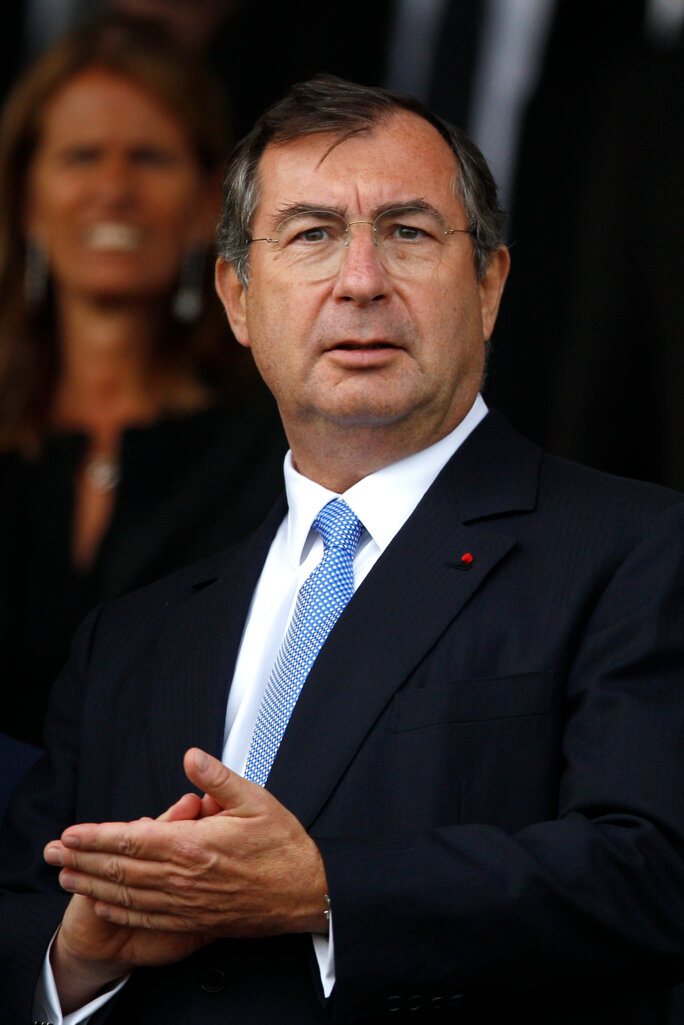
Enlargement : Illustration 5

It was no coincidence that seven years later, in 2014, Jean-Louis Haguenauer called on his friend Martin Bouygues to help smooth the administrative path for another oligarch close to Makhmudov, Andrei Bokarev, as well as his wife. The middleman approached Bouygues asking him to intercede with the then minister of the interior in France, Manuel Valls, to obtain a residence permit for the Bokarevs. This was the ultimate prize for many billionaire Russians. “I have no precise memory of the date of an event from five years ago,” says Martin Bouygues.
In any case, the intervention was particularly effective in getting the application examined. On March 18th 2014, in a letter seen by Mediapart, Manuel Valls replied to the French business boss, referring to him as “Dear Martin Bouygues”. He wrote: “Following on from your intercession, I can tell you that the situation of the interested [parties] has been the object of careful examination by the prefect in the Var [editor's note, a département in the south of France].”
Later Bouygues informed Jean-Louis Haguenauer through his personal assistant. The middleman was delighted and suggested that his friend “thank the minister whose recent intervention has allowed the situation to be unblocked”. He was also able to pass on the news to Bokarev, who is close to Putin, and thus strengthen just a little more his influence within the circles of power in Moscow.
V. The mysteries of K19
Jean-Louis Haguenauer was also involved with one of Moscow's most renowned night spots. For several years the K19 bar attracted all the city's top figures and foreign delegations, in particular those from France. Dozens of elected representatives and business bosses staying in the Russia capital have stayed there until the early hours, knocking back shots of vodka.
The bar, located opposite the FSB headquarters, also had rooms used by prostitutes. This naturally raised suspicions in a country where the gathering of kompromat or 'compromising material' – a method used by the Russian security forces to compromise their targets whether over sex or money – has become a key technique in the art of destabilising opponents.
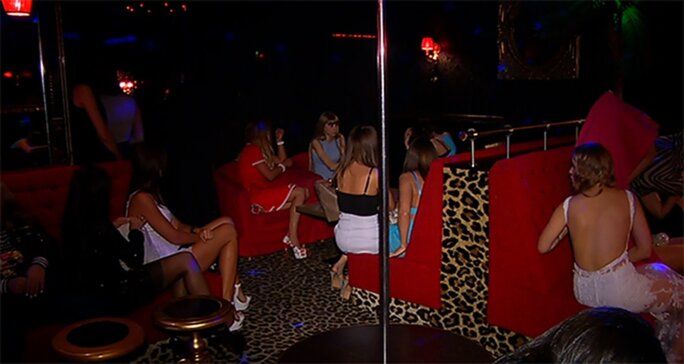
Enlargement : Illustration 6

Jean-Louis Haguenauer has never made much of his links with K19. But it was he who recruited the kricha (it literally means 'roof'), in other the protector whom one pays in Moscow to sort out problems with the authorities or deal with attempts at extortion by the local mafia. To watch his back the French middleman called on one of his old acquaintances, a Russian aged around 60 who was well connected with the secret services.
The Frenchman also received tens of thousands of euros from the club's tills. An accounting document even suggests Haguenauer owned a 20% stake in K19, though this is disputed. “Jean-Louis was not a shareholder in the club. He practically never set foot there,” argues Jean-Michel Cosnuau, one of Haguenauer's best friends and who was himself closely involved with running the club.
But the cash flow from the club did exist. “That relates to repayments with interest from the loan he gave me for the launch of the club,” says Cosnuau. “When I wasn't there [editor's note, he used to travel for six months a year] it was Jean-Louis's assistant who came to collect the money that I owed him, but they are not sums linked to the running of the club. They're repayments.”
The K19 was a flourishing business but then, one day in October 2015, it came to an abrupt halt. Despite its connections among the higher echelons of state, the club was raided by Moscow police as part of an investigation into prostitution and pimping. Jean-Michel Cosnuau, regarded by the authorities as one of the key figures at the club, was hauled in for questioning.
French MP Thierry Mariani intervened with the Russian authorities to get Cosnuau released. “He had some health problems and needed to be treated in France,” Mariani told Mediapart. “I wrote a letter on his behalf as I did for other French citizens,” said the MP, whose role was to represent French citizens living abroad. But Cosnuau, who attacked what he called a “classic Russia racket”, removed his electronic bracelet, travelled across Europe and took refuge in Marrakesh in Morocco. He says that while there had been prostitutes at the club, the K19 managers did not receive any money from this activity.
However, in August 2017 Cosnuau was arrested under an agreement between Russia and Morocco and spent nine months in a Moroccan jail before being extradited to Russia. There, on April 26th 2018, he was convicted by a Moscow court after a speedy trial. “The whole case was phony. As you'd expected there were 33 volumes of accusations which were full of nothing. The judge said to me: 'How long have you been on remand?' She sentenced me to what I'd done [on remand] and they let me go free me as soon as I left the court,” the Frenchman says bitterly. He has since left Russia and is now living in Georgia.
Asked on several occasion to respond to Mediapart's questions, Jean-Louis Haguenauer, said on Thursday May 16th through his lawyer that he “did not intend to comment on [Mediapart's] questions which are based mostly on falsehoods”. He did not elaborate on this.
VI. Operation Macron
According to several people close to him, Jean-Louis Haguenauer took a step back from his Russian activities and began to spend more and more time in Marrakesh, where he owns a villa.
In Morocco the Frenchman is closely involved in the running of an arts foundation called Montresso, which he set up in 2009 to unearth new talent in contemporary art, a passion of his for many years. In particular he developed a residency for renowned artists called Jardin Rouge, and an exhibition area. Haguenauer owns the fund through a company, called Opim Trading Ltd, domiciled in the British Virgin Islands, one of the most notorious tax havens on the planet.
Thanks to his artistic activities, Jean-Louis Haguenauer has continued to do in Morocco what he is best at, and that is extending his network. The right-wing MP Olivier Dassault, son of the late Serge Dassault of the defence and aeronautics business of the same name, and who is passionate about music and photography, is close to Haguenauer, and went to the latter's tenth wedding anniversary celebrations in Morocco in February this year. Dassault also exhibited some of his photographic work at the foundation in the autumn of 2016. “It's an extraordinary place to visit and go back to,” says the MP, who confirms his “friendly and cultural” relationship with the French businessman.
In relation to Jean-Louis Haguenauer's work for Dassault in Moscow in the past, the MP says: “Mr Haguenauer has very highly-placed connections in Russia. If he was able to use them to help our aeronautical group through purchases of the [Dassault business jet] Falcon, well done and great. We didn't know each other at that time and I don't have any other information.”
In January 2017, a few weeks after Olivier Dassault's exhibition in Marrakesh, Haguenauer's Montresso Art Foundation became the official partner of an exhibition of street art launched by the official group representing artisans and traders in Seine-Saint-Denis, a département bordering Paris to the north-east. Its president was Patrick Toulmet, who had supported Emmanuel Macron's candidacy for the presidency from the start. Toulmet, who went on to become the inter-ministerial delegate responsible for developing apprenticeships in priority urban areas after Macron's victory, had spoken during Macron's first political rally in July 2016 at the Mutualité conference centre in Paris in July 2016. It was also at Toulmet's training centre in Bobigny, north-east of Paris, that Macron had formally announced his candidacy for the presidency in November 2016.
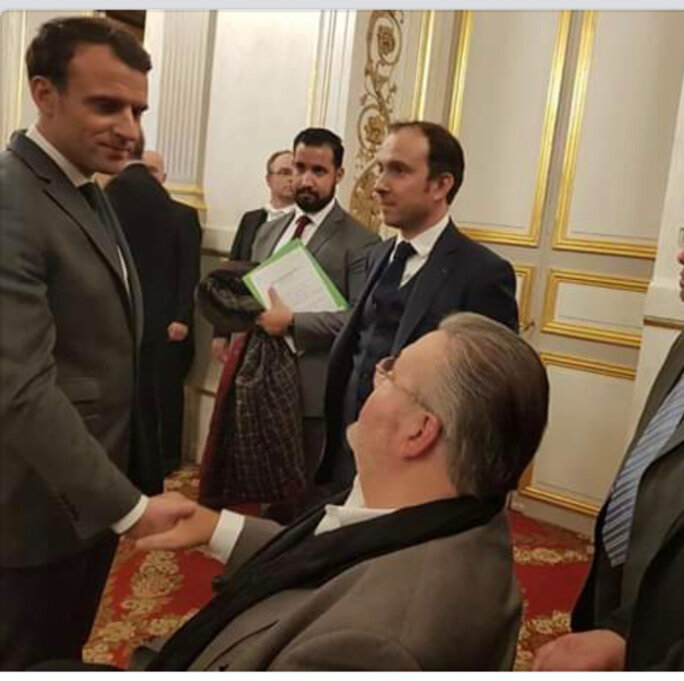
Enlargement : Illustration 7

Contacted by Mediapart, Toulmet said that the artistic project with the Moroccan foundation was led by a former colleague, Sébastien Ménard, another early supporter of Macron who went on to become an unsuccessful candidate for Macron's La République en Marche party in the 2017 Parliamentary elections.
“I'd heard of Jean-Louis Haguenauer via the 'street' community in 2014/2015 and I met him in 2016 when I started up some projects. Everyone in that world knows him. He's helped, supported, advised or enhanced heaps of artists,” Sébastien Ménard told Mediapart, extolling the merits of this “[arts] patron with a big heart” and an eclectic list of contacts. “Jean-Louis is someone from the street. He knows all sorts of people. From nobodies to heads of state, including presidents of the Russian Federation states,” he adds. Ménard, who failed in an attempt to export the popular French comedy TV game show Intervilles to Russia, is criticised by some in Macron's circles for the way he has kept open links with Russia, in particular via Russia Today France, a Russian state-backed broadcaster blacklisted by the French president.
Haguenauer, meanwhile, had quickly thrown his support behind Macron. “He likes outsiders. In his discussions he defended [Macron's] youth, his intention to break the rules, to topple the system,” says Ménard, explaining a decision which surprised many in Haguenauer's own circle.
So, according to text messages sent by Mediapart, in September 2016, at the time when Alexandre Benalla was joining the Macron campaign, Haguenauer himself was urging elected representatives in Paris to throw in their lot with Macron, who had previously been President François Hollande's economy minister.
However, there is no doubt that Haguenauer's key connection in Macron's entourage was Alexandre Benlla. The two men had known each for a long time, well before Benalla began working in the Élysée as the president's security aide. The pair admired each other, appreciating the unconventional routes that each had taken in their lives, and how they had both, through nerve and cunning, reached the peaks of their own worlds through their own efforts.
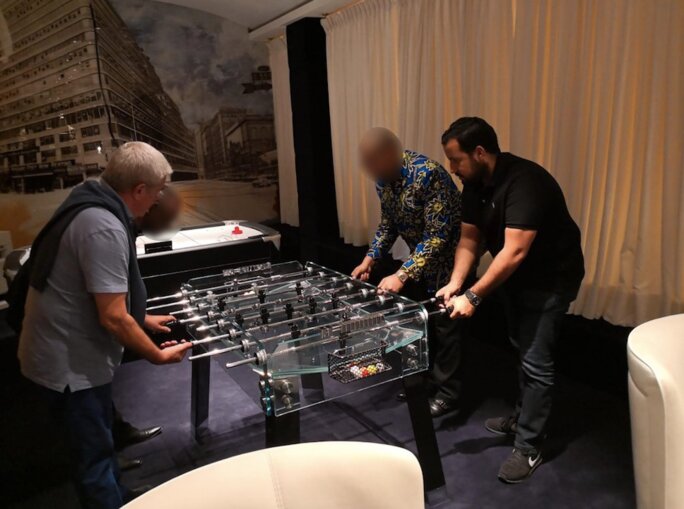
Enlargement : Illustration 8

Nor did this friendship and mutual appreciation exclude business deals. At the end of 2017 Haguenauer suggested to Iskander Makhmudov's people, with whom he worked regularly, to part company with his existing security team in France and Monaco where the oligarch owns several properties. The aim was to replace the men in situ – Serbian professionals - with a team discreetly drawn up by Alexandre Benalla, who was at the time still an assistant chief of staff in charge of security issues at the French presidency under Emmanuel Macron.
Benalla's post meant he was approved for access to defence secrets. His privileged position in the entourage of Emmanuel Macron and his wife Brigitte Macron also meant that he was in close proximity to the secrets of the head of the sixth most powerful country in the world. Potentially this could have prevented an opportunity for the Russian secret services.
The commercial side of the Russian contract was handled by gendarme Vincent Crase who worked at the ruling party La République en Marche and was also the head of a private security firm called Mars. This was one of the old pseudonyms used by Benalla on social networks. The first payment was made in cash in June 2018 by the Russian oligarch from an account at the Julius Baer bank in Monaco. The sum paid was 294,000 euros.
After Le Monde revealed in July 2018 the acts of violence involving Benalla and Crase at demonstrations on May 1st 2018, the two men set up a new arrangement for the Russian contract using an unknown company called France Close Protection, secretly managed by Benalla. The sum involved in this new version of the Makhmudov contract was 980,000 euros.
Benalla and Jean-Louis Haguenauer stayed in touch and they were seen together on June 5th 2018 at an evening organised by Chinese investors in a garden that leads out onto the Place de l'Étoile in central Paris. The two men met again at the end of August in the vast château in the Périgord region of south-west France owned by businessman Vincent Miclet, who is said to have major business interests in Africa.
Alexandre Benalla, who has not responded to Mediapart's requests for a comment, has always denied being involved with Iskander Makhmudov's Russian contracts, as he stated before the French Senate. His explanations, like those of Vincent Crase – his colleague who was in joint-charge of security at La République en Marche and who also had not responded to Mediapart's request for comment – did little to convince senators. They have referred the issue to the legal authorities for possible false testimony, and an investigation is in progress.
In their report into the Benalla affair, published in February, the senators considered that the Russian contract aspect of the affair showed “major dysfunctions at the highest levels of the state”. They also spoke of the “weakening of presidential security and of national interests”.
“There is no doubt that the links maintained between a Russian oligarch and someone working at the Élysée who is directly involved in the security of the Republic's presidency is of a character, given the financial dependency involved, to affect the head of state's security and, beyond that, the interests of our country,” said one of the Senate investigation's rapporteurs, socialist senator Pierre Sueur.
According to several witnesses, since the revelations over the Russian contracts Jean-Louis Haguenauer has lived almost as a recluse in his villa in Marrakesh, laid low by having been thrust into the spotlight of the Benalla affair. A friend of the businessman thinks he knows why: “Jean-Louis has always known that the day he comes out into the open he is lost.”
----------------------------
If you have information of public interest you would like to pass on to Mediapart for investigation you can contact us at this email address: enquete@mediapart.fr. If you wish to send us documents for our scrutiny via our highly secure platform please go to https://www.frenchleaks.fr/ which is presented in both English and French.
--------------------------
- The French version of this article can be found here.
English version by Michael Streeter


